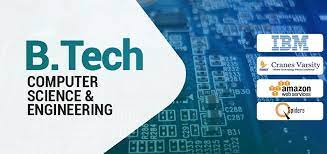Latest Computer Technology
The world of computer technology is ever-evolving, with new advancements emerging at a rapid pace. Staying updated with the latest trends is essential for tech enthusiasts and professionals alike. Here, we explore some of the most recent innovations in computer technology that are shaping the future.
Quantum Computing
Quantum computing is one of the most exciting developments in the field of computer technology. Unlike classical computers that use bits to process information, quantum computers use quantum bits or qubits. This allows them to perform complex calculations at unprecedented speeds. Companies like IBM and Google are making significant strides in this area, with Google’s Sycamore processor achieving quantum supremacy by solving a problem that would take classical computers thousands of years.
Artificial Intelligence and Machine Learning
Artificial Intelligence (AI) and Machine Learning (ML) continue to revolutionise various industries. Recent advancements have led to more sophisticated algorithms capable of performing tasks such as natural language processing, image recognition, and predictive analytics with greater accuracy. AI-driven applications are becoming more prevalent in sectors like healthcare, finance, and transportation, offering innovative solutions to long-standing challenges.
Edge Computing
Edge computing is transforming how data is processed and managed. By bringing computation closer to the source of data generation, edge computing reduces latency and bandwidth usage compared to traditional cloud computing models. This technology is particularly beneficial for Internet of Things (IoT) devices, autonomous vehicles, and remote monitoring systems where real-time processing is crucial.
5G Connectivity
The rollout of 5G networks promises faster internet speeds, lower latency, and improved connectivity for a wide range of devices. This next-generation wireless technology supports enhanced mobile broadband experiences and enables new applications such as smart cities, augmented reality (AR), and virtual reality (VR). As 5G infrastructure continues to expand globally, it will significantly impact how we interact with technology on a daily basis.
Advanced Graphics Processing Units (GPUs)
The demand for high-performance graphics processing units (GPUs) has surged with the rise of gaming, AI research, and cryptocurrency mining. Companies like NVIDIA and AMD are constantly pushing the boundaries with their latest GPU offerings. The introduction of NVIDIA’s Ampere architecture has brought substantial improvements in performance and energy efficiency, making it a game-changer for both gamers and professionals working on intensive computational tasks.
Conclusion
The latest advancements in computer technology are paving the way for a future where computational power is more accessible and efficient than ever before. From quantum computing breakthroughs to the widespread adoption of AI-driven applications and 5G connectivity, these innovations hold tremendous potential for transforming industries and improving our everyday lives.
Staying informed about these developments ensures that individuals and businesses can leverage cutting-edge technologies to stay competitive in an increasingly digital world.
Exploring Cutting-Edge Computer Technology: Answers to Six Key Questions
- What is quantum computing and how does it differ from traditional computing?
- How is artificial intelligence (AI) impacting various industries in the realm of computer technology?
- What are the benefits of edge computing compared to cloud computing?
- How will 5G connectivity revolutionise the way we interact with technology?
- What are the latest advancements in graphics processing units (GPUs) and their applications?
- How can individuals and businesses stay updated with the rapidly evolving field of computer technology?
What is quantum computing and how does it differ from traditional computing?
Quantum computing represents a paradigm shift in the world of computer technology, offering unparalleled processing power and capabilities. Unlike traditional computing, which relies on bits to store and process information in binary form (0s and 1s), quantum computing utilises quantum bits or qubits. These qubits can exist in multiple states simultaneously due to the principles of superposition and entanglement, allowing quantum computers to perform complex calculations at exponentially faster speeds than classical computers. This ability to explore multiple solutions simultaneously enables quantum computers to tackle problems that are currently infeasible for traditional systems. In essence, quantum computing harnesses the unique properties of quantum mechanics to revolutionise computational tasks and unlock new possibilities for solving complex problems across various fields.
How is artificial intelligence (AI) impacting various industries in the realm of computer technology?
Artificial Intelligence (AI) is profoundly transforming various industries within the realm of computer technology by automating processes, enhancing decision-making capabilities, and driving innovation. In healthcare, AI-powered systems are revolutionising diagnostics and personalised treatment plans through advanced data analysis and pattern recognition. In finance, AI algorithms are improving fraud detection, risk management, and customer service through automated chatbots. The retail sector benefits from AI’s ability to optimise inventory management and personalise shopping experiences through predictive analytics. Additionally, in manufacturing, AI-driven robotics and machine learning models are enhancing productivity and precision in production lines. Overall, AI’s integration into these industries is leading to increased efficiency, cost savings, and the creation of new opportunities for growth and development.
What are the benefits of edge computing compared to cloud computing?
When considering the benefits of edge computing over cloud computing in the realm of latest computer technology, it becomes evident that edge computing offers distinct advantages in terms of reduced latency and improved data processing efficiency. Unlike cloud computing, which relies on centralised data centres located at a distance from end-users, edge computing brings computation closer to the source of data generation. This proximity allows for faster data processing, lower latency, and reduced bandwidth usage, making it ideal for applications requiring real-time responses and enhanced performance. Additionally, edge computing enhances data security and privacy by keeping sensitive information closer to where it is generated, thereby minimising the risks associated with transmitting data over long distances to centralised servers.
How will 5G connectivity revolutionise the way we interact with technology?
The advent of 5G connectivity is poised to revolutionise the way we interact with technology in profound ways. With its promise of ultra-fast internet speeds, minimal latency, and enhanced reliability, 5G will unlock a new era of connectivity that enables seamless communication between devices and unprecedented levels of data transfer. This advancement will not only empower the development of innovative technologies such as augmented reality (AR), virtual reality (VR), and Internet of Things (IoT) applications but also redefine how we experience digital content, conduct business operations, and engage with smart devices in our daily lives. The widespread adoption of 5G connectivity is set to create a more interconnected and efficient digital ecosystem that shapes the future of technology interactions on a global scale.
What are the latest advancements in graphics processing units (GPUs) and their applications?
The latest advancements in graphics processing units (GPUs) have brought significant improvements in performance, efficiency, and versatility. Modern GPUs, such as those based on NVIDIA’s Ampere architecture and AMD’s RDNA 2 architecture, offer remarkable computational power and energy efficiency, making them ideal for a wide range of applications beyond traditional gaming. These advanced GPUs are now extensively utilised in fields such as artificial intelligence (AI) and machine learning (ML), where they accelerate complex data processing tasks and model training. Additionally, GPUs play a crucial role in scientific research, enabling high-performance computing for simulations and data analysis. In the realm of creative industries, GPUs enhance rendering speeds for 3D graphics and video editing, allowing professionals to achieve higher levels of detail and realism. The integration of ray tracing technology further elevates the visual quality in gaming and virtual reality (VR), providing more immersive experiences. Overall, the continuous evolution of GPU technology is driving innovation across various sectors by offering unparalleled processing capabilities and expanding the possibilities of what can be achieved with modern computing systems.
How can individuals and businesses stay updated with the rapidly evolving field of computer technology?
In order to stay abreast of the rapidly evolving field of computer technology, individuals and businesses can adopt several strategies. Firstly, subscribing to reputable tech news websites, following industry influencers on social media platforms, and attending tech conferences and webinars can provide valuable insights into the latest trends and advancements. Engaging in continuous learning through online courses, workshops, and certifications can also help individuals enhance their technical skills and knowledge. Additionally, networking with professionals in the tech industry and participating in online forums and communities can facilitate knowledge sharing and collaboration. By embracing a proactive approach to learning and staying connected with the tech community, both individuals and businesses can effectively navigate the dynamic landscape of computer technology.


